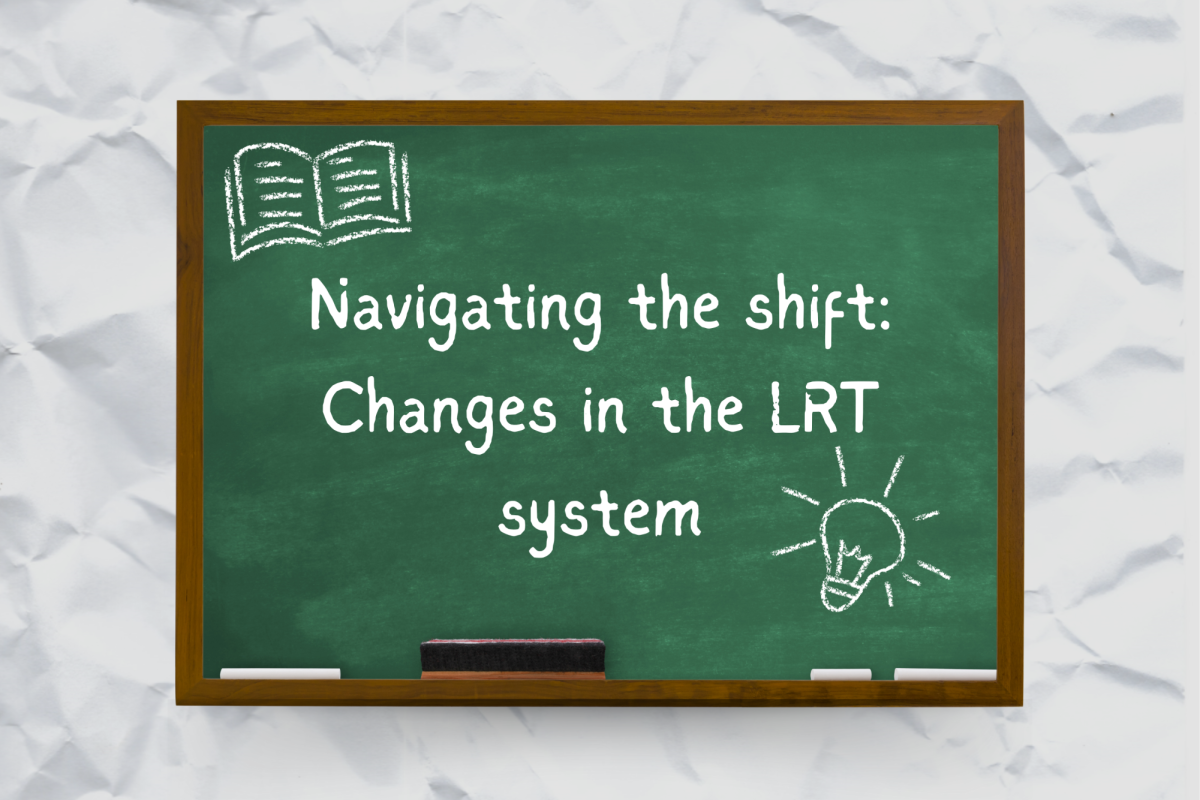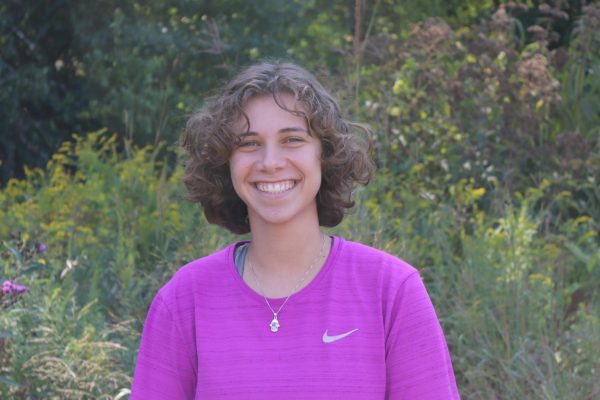This year, WHS has decided to alter the Learning Resources Team (LRT) program in an attempt to improve and individualize it. There are multiple different LRT programs to support students’ individualized needs such as math, reading and writing and executive functioning help. Students are placed into a specific skill class based on what their Individual Education Plan (IEP) specifies.
In past years, some students have viewed LRT as a more structured study hall, where they are able to get the help they need, but can also work independently. This year, LRT is similar to normal academic classes – there are lesson plans, and students are given assignments on various topics.
“The skills classes are split up into a five to 10 to 15 minute mini lesson based off of that skill and the rest of the time is application of that lesson,” LRT teacher Jake Haspel said. “Special educators go to school, we do a lot of work and we have all this knowledge we want to teach to our students instead of just kind of sitting there while students are doing homework. I think because of what we as special educators can bring to the table and how the government wants it to be structured, it makes a lot of sense to have it be this way.”
Prior to this year, students would use LRT on an as-needed help basis, whether it was to chat with their assigned liaison teacher, get help on homework or study for a test. This year, teachers are asked to dedicate approximately 15 minutes at the beginning of each class to a mini-lesson designed to improve explicit skills based on each student’s IEP goals. After that, students are given time to work on homework or study for tests.
“Before, students were receiving drop in support for any type of homework or assessment,” WHS principal Allyson Mizoguchi said. “It was not necessarily targeted to the goals of their IEP. The difference is, before was a very quality but very generalized support, like in the moment kind of support. Now [LRT is] more of a class where students are really developing skills that are totally aligned with what their IEPs say their goals are.”
While the intentions behind the changes in LRT are meant to be useful for students, some students have found that the changes have negatively impacted their education.
“In the past, [LRT] was really beneficial because I have bad organization skills and they helped me get all my work done,” junior Griffin Wood said. “The LRT change affected [my learning] a lot because it is an unnecessary change and I didn’t need it. Change is the last thing you want when something is working well.”
Not only has the program’s change impacted students, it has also impacted their families. While Wood was in an LRT freshman and sophomore year, he was not put into one at the beginning of junior year. Both him and his family began constant communication with WHS, attempting to fix the situation.
“My family is not happy with the changes at all,” Wood said. “My mom has been really upset with the way this whole thing has worked and the way it’s been managed. She’ll try to communicate with the school and they don’t really communicate back with her. I also emailed the school at the beginning of the school year, and it took 3 weeks before they put me in an LRT.”
Some students even began to feel that the newly revised LRT program has not only been unfavorable this year, but even harmful.
“Something that I find ridiculous is that the executive functioning [class] is taking time away from me doing my homework, which is in turn making my executive function worse,” sophomore Frankie Zilembo said.
While the aim of this transition was for students to have more specific support systems, some have, as a result, been separated from the LRT teachers that they have been with for multiple years. In the past, the Special Education department would attempt to pair up students and LRT teachers for the entirety of that student’s high school career, in order to help students build a reliable enough relationship with their teacher. At the same time, it also lets parents get to know the LRT teacher well enough to properly communicate about their child’s IEP.
“I was with [Mark] Schwartz freshman year and it was a good fit as he actually helped me a lot,” Wood said. “I was supposed to be with him for all four years, but twice since sophomore year, I’ve had a change in teachers, and at one point I didn’t even have an LRT which affected me a lot.”
Teachers and administration have together emphasized the importance of the change, and their hope for it to benefit students once they adjust to the transition.
“The hope is that as each grade comes up through, and we have this new system, then it’ll kind of be smoother,” Haspel said. “But for the seniors and juniors and even the sophomores, it is a hard change because there was a system last year. It’s a different system now.”
Despite the hope for all students to adjust smoothly to the new system and grow accustomed to it, some fear that the new system will never live up to the merits of the old system.
“I think I could learn to adjust to it in a year maybe, but part of me will always miss how it was because of how well it worked,” Zilembo said.
The objective of LRT is to help students work on individualized skills and teach them how to bring classroom skills they learn into their lives outside of school. The administration and Special Education department in Wayland believe this format is the best option for students, and while there are difficulties of adjusting to the new system, WHS administrators say that over time, the positive effects of these changes will fall into place.
“I think we’re anticipating that it will be a very positive shift, but we were never expecting it to be smooth sailing all the way,” Mizoguchi said. “I guess really it’s reminding students what the purpose of the IEP is, and that we are supporting them in growing and developing skills that are identified. It’s our effort to actually do better by them and to serve students more effectively, which is gonna take a little time.”
New Student Services Administrator Mikayla Cohen’s job is to oversee the Special Education programs in Wayland from an administrative perspective, and also collaborate with teachers. Cohen found that while the change between student–teacher connections difficult for some students, she has been helping teachers navigate this change.
“Change is a very hard thing and it’s a very slow process,” Cohen said. “This is kind of a learning year for everybody, and we’re already learning things that we want to adjust next year to make it even better.”
Some students, including Zilembo, have found their LRT to be counterproductive. Zilembo is in an executive functioning class and needs extra time to work on homework. She has been frustrated by her inability to do the work she needs to do because of the mini-lessons at the beginning of class. She also found that the relationship she was cultivating with her teacher last year allowed her to feel comfortable in her LRT, make mistakes and grow as a student.
“I was told that your liaison was going to stay the same for all four years, which is something that would have been really important for me,” Zilembo said. “I really value building connections and I had a really good one last year with my LRT teacher. Everything changed this year, which has been really frustrating for me because I’ve spent all of first quarter trying to rebuild these connections.”
Through the implementation of new practices in the LRT program to best support special education students, one key goal has remained the same for administrators: preparing these students for life beyond high school.
“A lot of times, you kind of fall into the trap of, ‘I just need to get this kid to pass’ or ‘I just need to get this kid to make it through and keep their head above water’ and you kind of get in that reactive cycle,” Cohen said. “Whereas if we’re in a program like this where we’re building student skills, we’re going to build their ability to be more proactive and be more independent and setting them up for more success outside of high school.”






























. • Nov 23, 2024 at 6:12 PM
New LRT is trash
One of thousands of sophias at this school • Nov 22, 2024 at 1:59 PM
Great work on the authors when writing this article!
As someone who learned very late that she has a learning disability, and is currently in the process of getting an IEP at WHS, I understand and sympathize with students who felt like the old version of LRT granted them more freedom and independence. When I spoke with a friend (who participates in the program) about it, we agreed that this new system feels like it is stripping away the opportunity to develop autonomy. I personally believe that while there are merits to the new system, I disagree that students should be assigned to these modular classes without their permission and based off of abstract learning goals.
Change is hard, and as Wood perfectly said, “Change is the last thing you want when something is working well”. LRT can function as a space where students directly learn how to develop executing functioning skills and more, but also one must acknowledge that the older model provided a space for students to learn these skills indirectly and with personal experimentation. I think a good balance of both, rather than prioritizing one over the other, is more natural and offers students more control. I would like to see a model where students opt-in, rather than opt-out of these classes, because they are admittedly experimental, and not guaranteed to be the best learning experience LRT students can be offered.